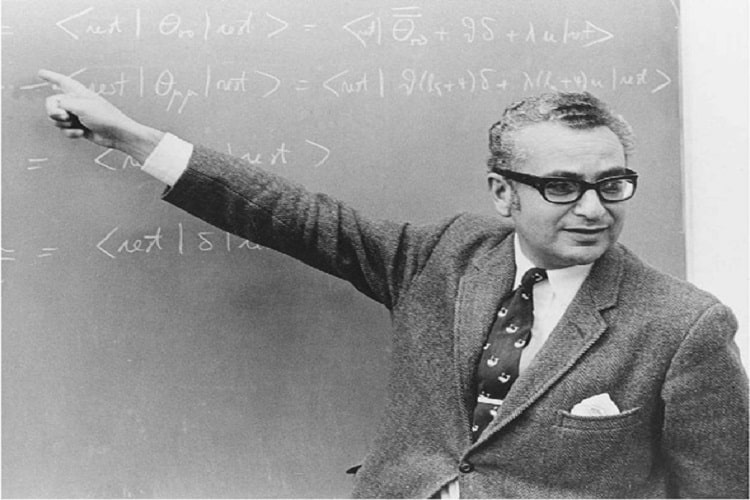Murray Gell-Mann: Pioneer of Particle Physics

Murray Gell Mann (15 September 1929 – 24 May 2019) was an American physicist. He was awarded the Nobel Prize in Physics in 1969.
Life and Career
Murray Gell Mann was born on 15 September 1929, in Manhattan, New York, United States. Gell-Mann attended the Columbia Grammar & Preparatory School in New York City. He went on to study physics at Yale University, earning his bachelor’s degree in 1948. He pursued graduate studies at the Massachusetts Institute of Technology (MIT), where he completed his Ph.D. in 1951 under the supervision of Victor Weisskopf.
Gell-Mann’s career in theoretical physics took off with his work on the theory of strong interactions, which eventually led to the development of the “Eightfold Way” and the classification of hadrons. He is most famous for his proposal of the “quark” model, which explained the behavior of subatomic particles and revolutionized the field of particle physics.
Throughout his career, Gell-Mann made significant contributions to quantum field theory, quantum mechanics, and the study of elementary particles. He held academic positions at various institutions, including the California Institute of Technology (Caltech). Murray Gell Mann passed away on 24 May 2019, in Santa Fe, New Mexico, United States.
Award and Legacy
Gell-Mann received numerous prestigious awards and honors during his lifetime, including the Nobel Prize in Physics in 1969 for his work on the theory of the strong force and the classification of elementary particles. He also received the National Medal of Science, the Franklin Medal, and the Prince of Asturias Award for Technical and Scientific Research, among others.
Murray Gell-Mann’s quark model has had a profound and lasting impact on the field of particle physics, providing a fundamental framework for understanding the behavior of subatomic particles. His work continues to influence research in theoretical physics, particularly in the study of the strong force and the fundamental particles that make up the universe. Gell-Mann’s contributions to science and his role as an educator and mentor have left a lasting legacy, inspiring future generations of physicists to explore the mysteries of the universe.
Observer Voice is the one stop site for National, International news, Sports, Editor’s Choice, Art/culture contents, Quotes and much more. We also cover historical contents. Historical contents includes World History, Indian History, and what happened today. The website also covers Entertainment across the India and World.

